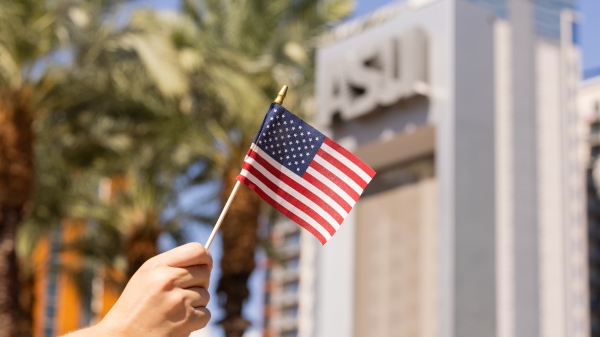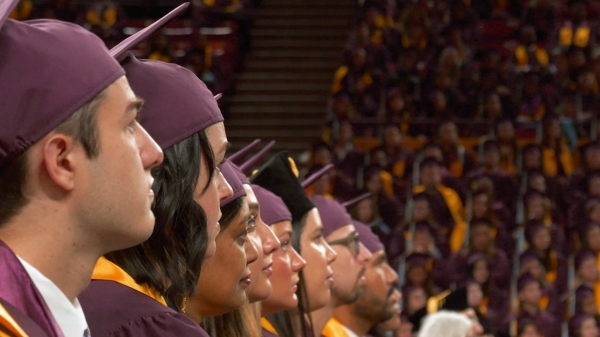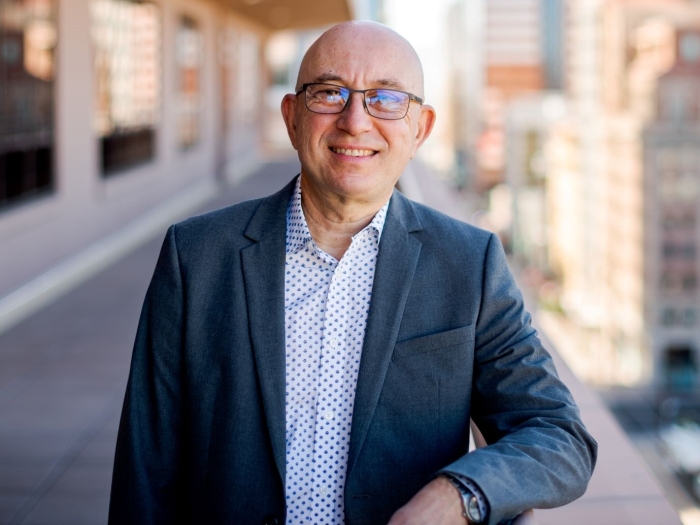ASU professor’s public health outreach to underserved borderlands communities earns APHA award for social justice
An Arizona State University social work professor, whose research in cultural diversity and youth substance use has earned him high regard in the prevention field, will be honored next month with the American Public Health Association’s 2022 Helen Rodriguez-Trias Social Justice Award.
Regents Professor Flavio Marsiglia, director of ASU’s Global Center for Applied Health Research, will receive the award Nov. 8 for his public health prevention work with underserved communities near the U.S.-Mexico border, according to an Oct. 6 statement by the association.
“Marsiglia’s work includes the founding of (ASU’s) Southwest Interdisciplinary Research Center to address health disparities in underserved communities and the creation of a substance-use prevention initiative targeted at Hispanic youth,” the statement said. The school-based model prevention program, called Keepin’it REAL, was later adapted for urban American Indian children in the Southwest.
Marsiglia is the principal investigator of a Mexico-based National Institute on Drug Abuse/National Institutes of Health-funded study to culturally adapt and test the efficacy of Keepin’it REAL in Mexico. He and his team are also implementing and evaluating culturally grounded interventions to prevent substance abuse in other Latin American countries and in sub-Saharan Africa.
The Helen Rodriguez-Trias Award is presented to a person who has worked toward social justice for underserved and disadvantaged populations — an individual whose work focuses on improving the health and well-being of these populations — and includes the activities of leading, advocating and mentoring (any or all three of these activities), according to the association.
The honor is named for the late Dr. Helen Rodriguez-Trias, a pediatrician and a past president of the American Public Health Association. Rodriguez-Trias was an inspiration and role model who strove to meet the needs of underserved and disadvantaged populations, especially women and children, according to the association. Through her work and activism, she used social justice strategies that affected change for the better.
Marsiglia noted that the award being named for Rodriguez-Trias has particular meaning for him.
“The award is named after an inspirational and transformational advocate for social justice in the public health arena. Her work promoting the rights of all women and children to live healthy lives has inspired our own work,” Marsiglia said. “This is a recognition of the community-engaged health equity research we are conducting with our community partners, faculty, staff and students in Arizona, nationally and globally. Much of this work is made possible by the steady support we receive from ASU, the National Institute of Minority Health and Health Disparities and the National Institute on Drug Abuse of the National Institutes of Health.”
Foundation Professor Elizabeth Lightfoot, director of the School of Social Work, said, “The accolades just keep coming for Dr. Flavio Marsiglia, each of them as well-deserved as the others, but this one is particularly significant as it focuses on his dedication to social justice.
“His efforts with Keepin’it REAL and many other culturally grounded interventions to stem the tide of youth substance abuse among underserved communities is highly regarded as a model program. I join my colleagues in the School of Social Work in congratulating him as he receives this great honor.”
The school is based at ASU’s Watts College of Public Service and Community Solutions. Watts College Dean Cynthia Lietz, a President’s Professor of social work, also praised Marsiglia for his accomplishments leading to the award.
“Dr. Flavio Marsiglia’s recognition by the APHA with an award focused in social justice is not just an incredible honor, but it is without a doubt deserved,” Lietz said. “Dr. Marsiglia has spent his entire career working to build a more equitable society. This prestigious award speaks to that commitment and his ability to demonstrate real-world impact.”
More University news

ASU establishes Center for Free Speech, will host annual free speech forum
Arizona State University is establishing a new Center for Free Speech to encourage the uninhibited exchange of ideas, and the…

Public affairs professor, back at ASU after 3 years with NSF, is named Sackton Chair
After three years at the National Science Foundation, Professor Mary Feeney has returned to Arizona State University, where she…

A decade strong: ASU takes top spot in innovation for 10th year in a row
For the 10th year in a row, Arizona State University is No. 1 in innovation in the newly released annual “Best Colleges” 2025…
